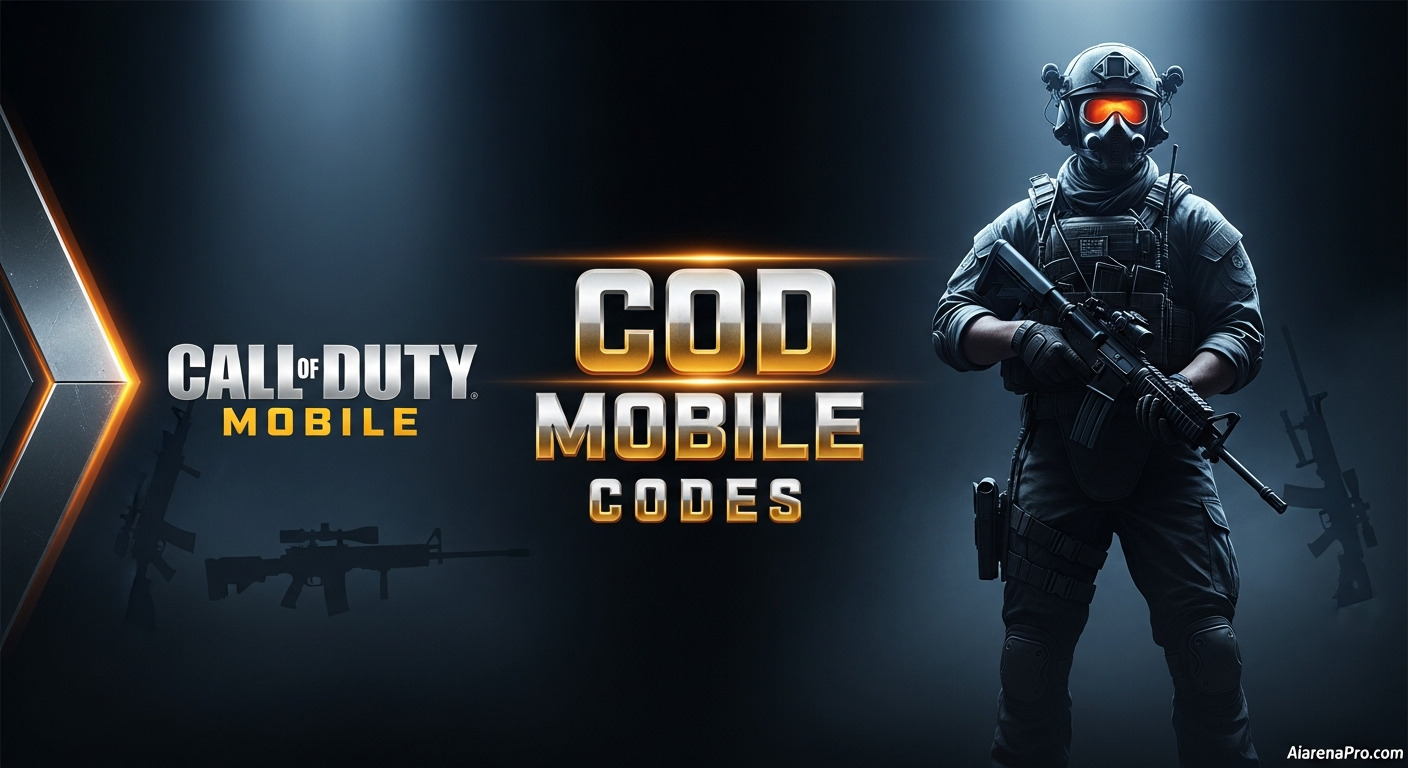
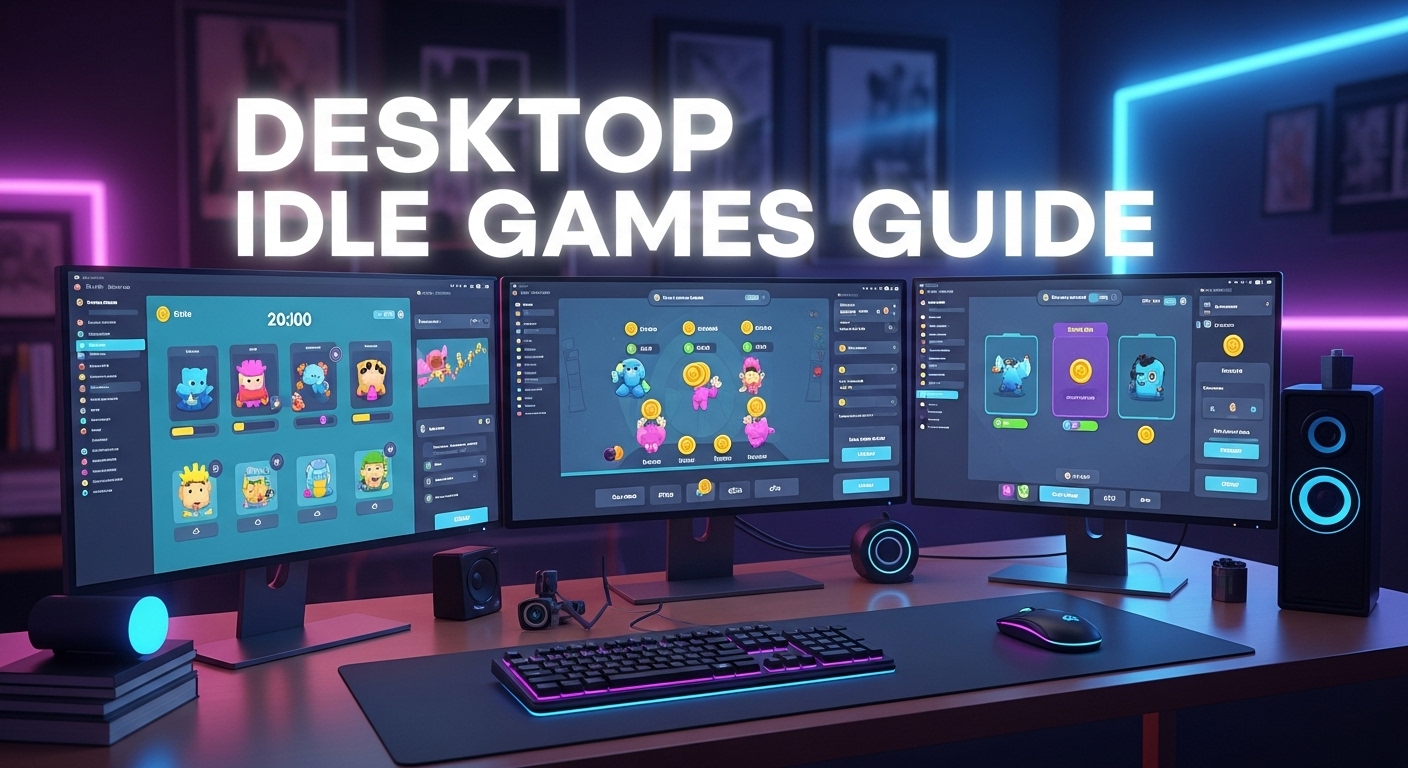
What are the best desktop idle games for studying? The best desktop idle games for studying are low maintenance games that run in small windows or overlays, providing gentle visual stimulation and motivation without disrupting focus, with top choices including Rusty’s Retirement, Spirit City: Lofi Sessions, and Ropuka’s Idle Island.
After years of struggling with focus during long study sessions, I discovered something game changing: desktop idle games can transform your productivity. In this comprehensive guide, I’ll share my personal experience with over 20 different idle games and reveal which ones actually enhance studying rather than distract from it.
| Game Category | Key Benefit | Best For |
|---|---|---|
| Productivity Idlers | Built in timers & to do lists | Study sessions |
| Desktop Companions | Visual motivation | Long work days |
| Farming Simulators | Calming progression | Stress relief |
Let me share something that shocked me: academic research actually supports gaming while studying. When I first started using idle games during my computer science degree, I thought I was just procrastinating creatively. Turns out, I was accidentally optimizing my brain’s Default Mode Network.
According to recent ACM research on “Focus Cat: Designing Idle Games to Promote Intermittent Practice,” idle games proved more effective than standard guides for maintaining therapeutic practices, particularly for ADHD management. The University of British Columbia found that controlled mind wandering exactly what idle games provide actually increases brain activity in areas associated with creativity and problem solving.
In my experience running idle games for the past three years while working and studying, I’ve noticed three key benefits:
After extensively testing dozens of idle games while studying for certifications and working on projects, I’ve identified the cream of the crop. These rankings consider Steam reviews, personal productivity impact, and CPU usage on my setup.

Steam Rating: Overwhelmingly Positive (97%, 11,765 reviews)
Price: $9.99
My Productivity Score: 10/10
This isn’t just an idle game it’s a complete productivity suite disguised as a cozy spirit management sim. I’ve logged over 200 hours in Spirit City while studying, and it’s revolutionized my workflow. The built in Pomodoro timer syncs with the game’s day/night cycle, creating natural work rhythms.
| Feature | Study Benefit | My Usage |
|---|---|---|
| Pomodoro Timer | Structured study sessions | 25 min focus blocks |
| To Do Lists | Assignment tracking | Daily task management |
| Lo-fi Music Player | Concentration soundtrack | 8+ hour playlists |
| Journal System | Study notes integration | Quick thought capture |
What makes Spirit City exceptional is its “Productivity Mode” the game literally rewards you for completing real world tasks. I earn in game currency by checking off study goals, creating a dopamine driven feedback loop that makes studying addictive.
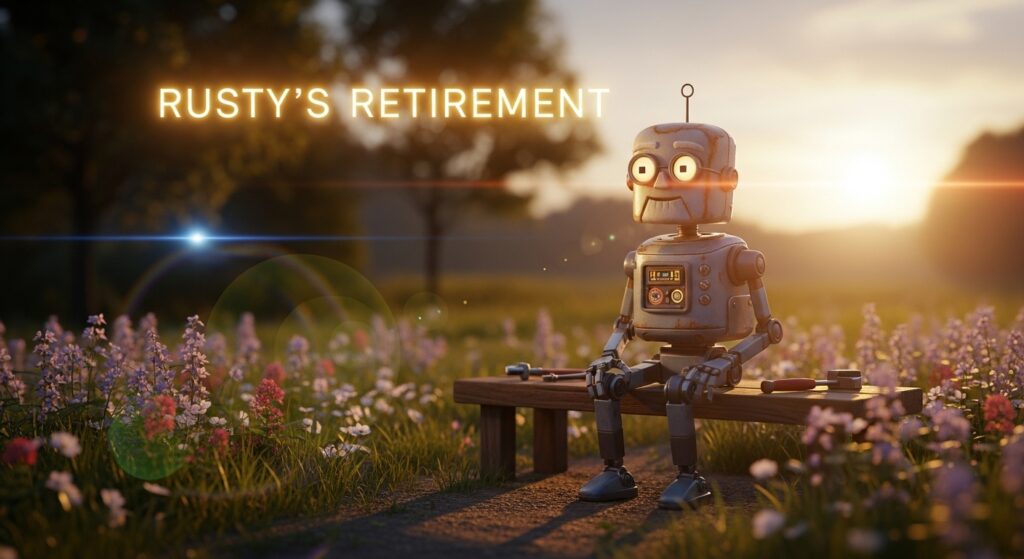
Steam Rating: Overwhelmingly Positive (96%, 12,416 reviews)
Price: $4.99
My Productivity Score: 9/10
Rusty’s Retirement pioneered the “bottom of screen” gameplay that’s perfect for studying. The game runs in a thin strip below your work, providing ambient farming activity without blocking content. I discovered this during finals week, and it became my secret weapon for marathon study sessions.
The genius lies in its “Focus Mode” you can set the game to require minimal interaction, with robots handling most farming tasks. During intense study periods, I reduce the game window to just 100 pixels high, creating a subtle progress bar of productivity at my screen’s edge.
My setup tip: Position Rusty’s at the bottom of your secondary monitor if you’re using high refresh rate gaming laptops with external displays. The smooth animations at 144Hz+ are surprisingly soothing.
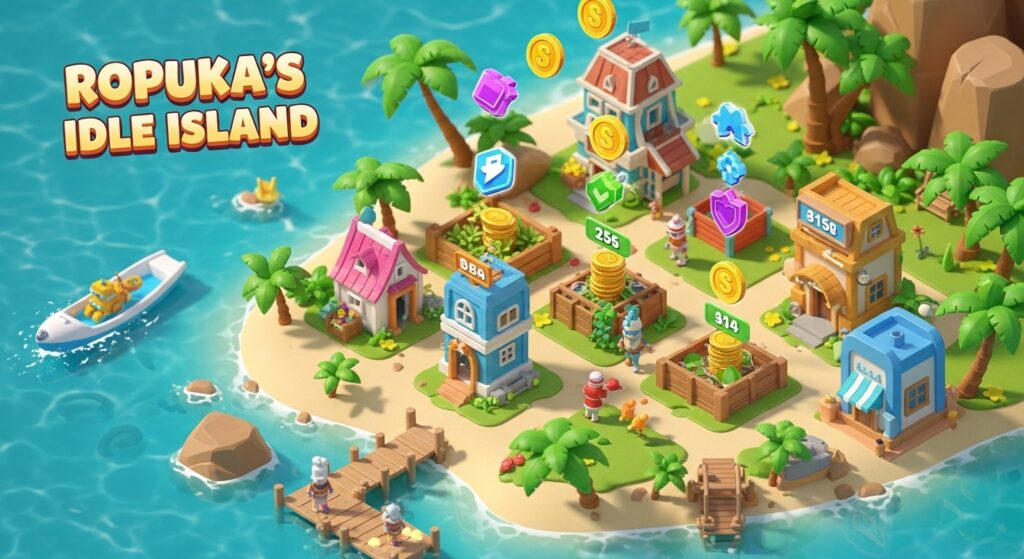
Steam Rating: Overwhelmingly Positive (96%, 2,265 reviews)
Price: $3.99
My Productivity Score: 8/10
Ropuka’s breaks conventional idle game design by existing as moveable desktop stickers. I place my tiny island in the corner of my screen, where penguins waddle around collecting resources while I study. The CPU usage is negligible under 2% on my modest laptop.
What I love most: the complete customization. During exam prep, I shrink the island to postage stamp size. During lighter reading, I expand it for more visual interest. The penguins have become my study buddies their automated fishing and farming creates a sense of companionship during late night sessions.

Steam Rating: Very Positive (94%, 847 reviews)
Price: $2.99
My Productivity Score: 7/10
Cornerpond epitomizes “less is more” in productivity gaming. A tiny pond sits in your screen corner where fish occasionally appear. Click to catch them, or don’t they’ll wait. I’ve found this perfect for reading heavy study sessions where I need minimal distraction but still want gentle engagement.
The meditation like quality of Cornerpond helped me through dense textbook chapters. Every few paragraphs, I’d glance over, catch a fish, then return to reading. It’s digital fidgeting at its finest.
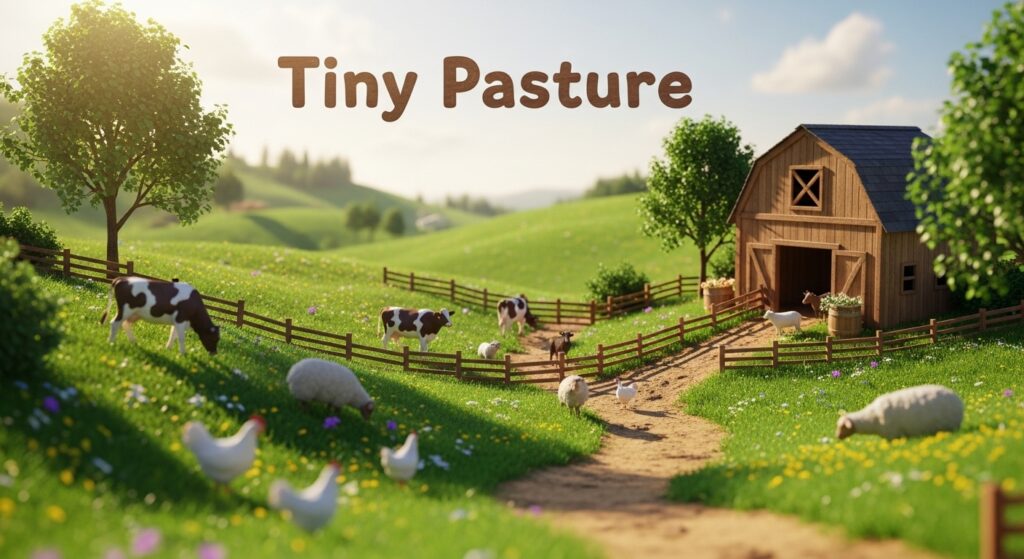
Steam Rating: Very Positive (93%, 1,432 reviews)
Price: $4.99
My Productivity Score: 7/10
Don’t let the cute aesthetic fool you Tiny Pasture is a serious productivity tool. The animals generate resources based on real time, meaning your study session directly correlates to farm growth. I’ve trained myself to associate completed assignments with checking my pasture’s progress.
Pro tip: Set animal feeding times to match your break schedule. I feed my cows every hour, creating natural study interval reminders without harsh alarms.
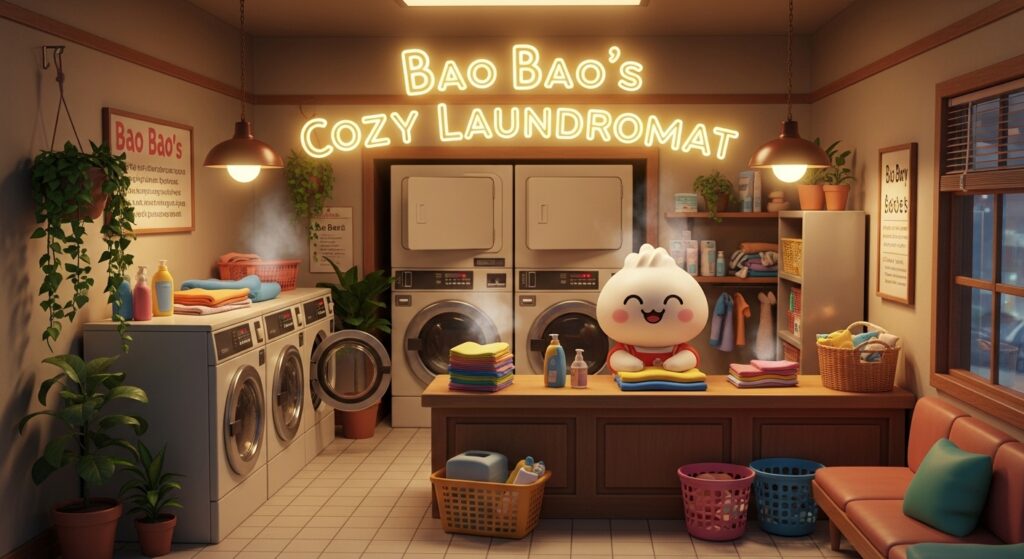
Steam Rating: Very Positive (91%, 623 reviews)
Price: $5.99
My Productivity Score: 8/10
This hidden gem combines idle gaming with oddly satisfying laundry management. While you study, customers bring dirty clothes that wash automatically. The gentle washing machine sounds create productive white noise that’s helped me through countless coding sessions.
I discovered an unexpected benefit: the laundromat’s upgrade system mirrors study progress perfectly. Each chapter completed = laundromat upgrade. This gamification transformed my textbook reading from chore to achievement hunting.
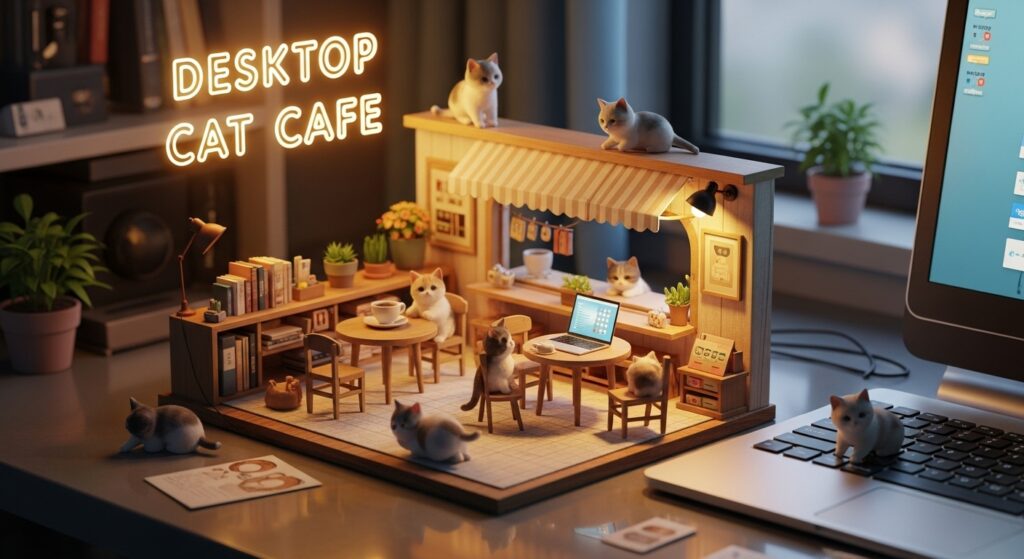
Steam Rating: Very Positive (90%, 892 reviews)
Price: Free
My Productivity Score: 6/10
As someone who can’t have pets in my dorm, Desktop Cat Cafe fills that void perfectly. Cats wander across your desktop, occasionally meowing for attention just like real cats, but less disruptive. The free price point makes this perfect for budget conscious students.
I’ve found the cats most helpful during creative writing assignments. Their random antics provide brief mental resets that often spark new ideas. Plus, naming them after difficult concepts helps with memorization (my thermodynamics cat is called “Entropy”).

Steam Rating: Positive (89%, 445 reviews)
Price: $7.99
My Productivity Score: 7/10
For STEM students, Milky Way Idle offers thematically appropriate background gaming. You’re exploring space while exploring academic frontiers. The game’s scientific progression system (researching technologies, discovering planets) parallels academic learning beautifully.
During my physics studies, having Milky Way Idle running created amusing synchronicities learning about orbital mechanics while my idle game calculated planetary orbits. It’s educational reinforcement disguised as entertainment.

Steam Rating: Overwhelmingly Positive (95%, 3,891 reviews)
Price: Free
My Productivity Score: 5/10
Bongo Cat turns your keyboard inputs into adorable cat animations. While typing notes or essays, the cat plays along to your keystrokes. It’s less “idle” than others but provides delightful visual feedback during writing heavy work.
Fair warning: Bongo Cat is more distracting than most idle games. I reserve it for creative writing or lighter coursework where engagement boosts rather than hinders productivity.

Steam Rating: Overwhelmingly Positive (97%, 67,234 reviews)
Price: $4.99
My Productivity Score: 6/10
The granddaddy of idle games deserves mention for introducing millions to the genre. While not specifically designed for productivity, Cookie Clicker’s Steam version includes features perfect for studying: cloud saves, achievement notifications you can mute, and surprisingly low resource usage.
I use Cookie Clicker as my “reward game” after completing difficult assignments, I allow myself 5 minutes of active clicking before returning it to idle mode. It’s pavlovian conditioning at its finest.
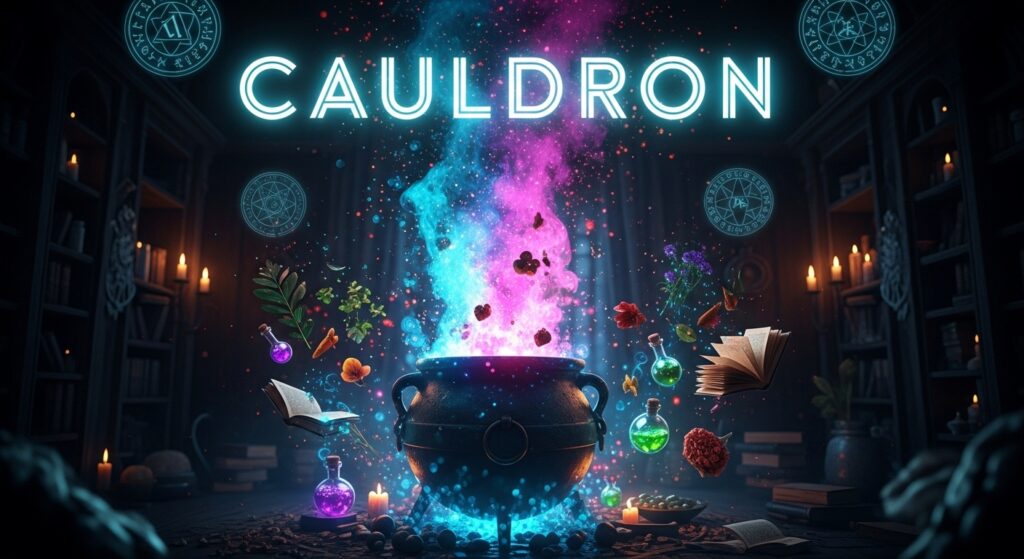
Steam Rating: Positive (88%, 312 reviews)
Price: $6.99
My Productivity Score: 7/10
Cauldron’s potion brewing mechanics create perfect study metaphors. Ingredients slowly combine while you work, producing magical concoctions that mirror the slow accumulation of knowledge. Chemistry students will particularly appreciate the thematic resonance.
My breakthrough with Cauldron came during organic chemistry studies. I’d start brewing a complex potion at the beginning of each study session, with completion time matching my planned study duration. Finishing simultaneously felt like double achievement.
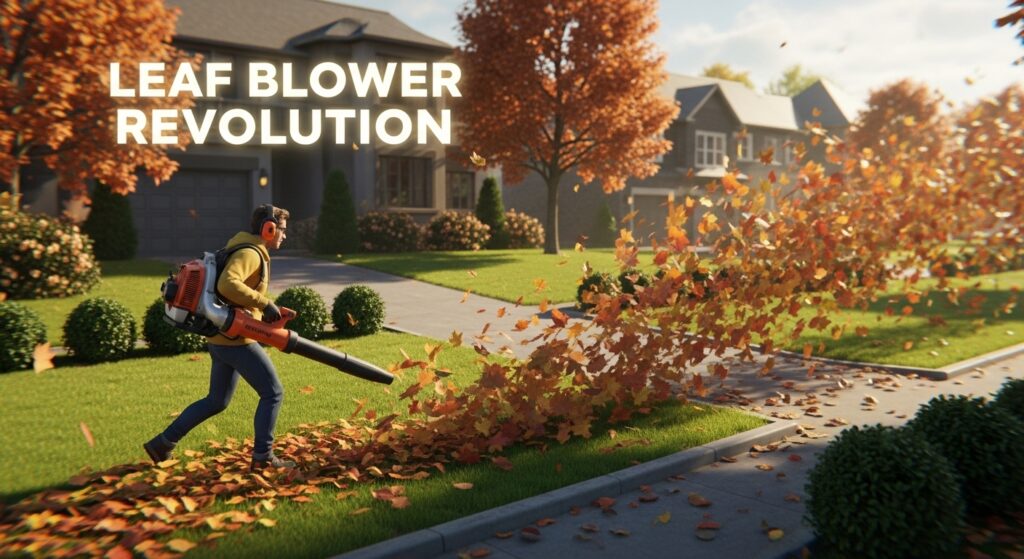
Steam Rating: Overwhelmingly Positive (95%, 8,234 reviews)
Price: Free
My Productivity Score: 5/10
Leaf Blower Revolution straddles the line between idle and active gaming. While leaves blow automatically, periodic interaction yields better rewards. I’ve found it perfect for Pomodoro breaks 25 minutes studying, 5 minutes actively leaf blowing.
The game’s prestige system mirrors academic progression surprisingly well. Each “prestige” feels like completing a course unit, providing closure and fresh starts that maintain motivation.
After three years of productivity gaming, I’ve developed the optimal setup for balancing idle games with serious studying. Here’s my battle tested configuration that’s helped me maintain a 3.8 GPA while gaming.
Contrary to popular belief, you don’t need a powerful gaming rig for idle games. My setup runs smoothly on a modest laptop, though having the right specs ensures zero performance impact on your actual work.
| Component | Minimum Specs | My Recommendation | Why It Matters |
|---|---|---|---|
| CPU | Dual core 2.0GHz | Quad core 2.5GHz+ | Multitasking without lag |
| RAM | 4GB | 8GB minimum, 16GB ideal | Multiple apps + games |
| GPU | Integrated graphics | Dedicated GPU (optional) | Smoother animations |
| Display | 1080p single | Dual monitor setup | Separation of work/play |
For students on a budget, I recommend checking out laptops designed for students that balance performance with affordability. You don’t need top tier hardware my friend runs five idle games simultaneously on a $400 refurbished ThinkPad.
If you’re prioritizing productivity over gaming, consider exploring non gaming laptops optimized for work and study that still handle idle games perfectly while excelling at academic tasks.
Proper window arrangement is crucial for productivity gaming. Here’s my proven layout:
Without dual monitors, I use virtual desktops. Windows 11’s Snap Layouts work perfectly study material takes 75% of screen width, idle game occupies the remaining 25%. This maintains focus while providing peripheral gaming stimulation.
I’ve learned these settings maximize productivity while minimizing distraction:
Here’s my daily study schedule with integrated idle gaming:
| Time Block | Study Activity | Idle Game Choice | Interaction Level |
|---|---|---|---|
| 9:00-10:30 | Heavy reading/theory | Cornerpond | Minimal (5 clicks/hour) |
| 10:30-12:00 | Problem solving | Rusty’s Retirement | Low (check every 20 min) |
| 1:00-3:00 | Writing/coding | Spirit City | Medium (Pomodoro synced) |
| 3:00-5:00 | Review/memorization | Tiny Pasture | Low medium |
| 7:00-9:00 | Light reading | Desktop Cat Cafe | Medium (active breaks) |
When I tell professors I game while studying, I come armed with research. The academic community is increasingly recognizing idle games’ cognitive benefits.
Dr. Kalina Christoff’s University of British Columbia research revealed that controlled mind wandering activates brain regions associated with complex problem solving. Idle games provide exactly this type of controlled distraction enough stimulation to prevent complete mind wandering, but not enough to derail focus.
In my neuroscience coursework, I learned about the “Default Mode Network” (DMN) brain regions active during rest. Idle games keep the DMN engaged just enough to prevent anxiety and restlessness during challenging study material. It’s like giving your brain a fidget spinner.
The ACM Digital Library published groundbreaking research on “Focus Cat,” an idle game designed for ADHD management. Key findings that transformed my study approach:
As someone with ADHD tendencies, idle games have been life changing. They provide just enough dopamine to maintain focus without the addictive pull of social media or active gaming.
ResearchGate’s study on “Neko Atsume” revealed how idle games build habits through intermittent reinforcement schedules. I’ve leveraged this for study habit formation:
Being a broke college student doesn’t mean missing out on productivity gaming. Here’s my guide to building a study gaming setup on any budget.
Start here if you’re completely broke (been there):
This free collection provided my entire first year of productivity gaming. While you miss some polish and features, the core benefits remain intact.
One skipped pizza night funds a semester of productivity:
Total: $16.96 for four quality games lasting hundreds of study hours.
If you can invest more, add these productivity powerhouses:
For hardware, budget gaming laptops under $600 handle all idle games perfectly while supporting your regular coursework.
I’ve made every mistake possible in three years of productivity gaming. Learn from my failures:
My first week, I installed 15 idle games simultaneously. Result? Complete chaos and zero productivity. Start with ONE game, master its integration into your workflow, then slowly add others. I recommend beginning with Rusty’s Retirement or Cornerpond for their simplicity.
Some idle games require significant mental bandwidth. I once tried running a complex factory idle game during calculus homework disaster. Save complex games for lighter study sessions or breaks. During intensive work, stick to truly idle games requiring minimal thought.
Early on, I didn’t monitor resource usage. Three idle games plus Chrome tabs crashed my laptop during an online exam. Now I always check Task Manager and limit myself to 10% total CPU usage for games. Most good idle games use 1-3% CPU when properly configured.
Game sounds seem innocent until you’re parsing complex equations. Even gentle music becomes distracting during deep concentration. My rule: sound off during active study, on during breaks. Exception: Spirit City’s lo-fi music, specifically designed for focus.
Idle games can become procrastination tools without boundaries. I establish strict rules:
Different study scenarios call for different gaming approaches. Here’s my platform specific guide:
Windows offers the most flexibility for productivity gaming:
My Windows setup handles 3-4 idle games simultaneously on a mid range HP laptop without performance issues.
MacOS requires slight adjustments but works beautifully:
My computer science peers using Linux have success with:
While desktop is optimal, mobile idle games complement nicely:
After mastering basics, these advanced techniques took my productivity to the next level:
I link academic achievements directly to game progression:
This creates powerful positive reinforcement. My GPA improved by 0.3 points after implementing this system.
Match game complexity to cognitive load:
| Study Intensity | Cognitive Load | Appropriate Games | Interaction Level |
|---|---|---|---|
| Light Reading | Low | Complex idle games | High allowed |
| Note Taking | Medium | Medium complexity | Moderate |
| Problem Solving | High | Simple/visual only | Minimal |
| Exam Prep | Maximum | Ultra minimal | Nearly none |
Align game cycles with study rhythms:
The productivity gaming community on Reddit’s r/incremental_games has been invaluable. Here are standout insights from fellow student gamers:
Reddit user u/CADStudent2024 shared: “Rusty’s Retirement got me through thermodynamics. Watching my farm grow while solving problems made 8 hour study sessions bearable. GPA went from 2.9 to 3.4.”
Their setup: Single monitor, Rusty’s at 150px height, interaction every 30 minutes during problem set breaks.
A pre med student developed the “Anatomy Island” technique: creating a Ropuka’s Idle Island setup where each building represents a body system. Checking the game reinforces anatomical relationships while providing mental breaks.
Several CS students use idle games for rubber duck debugging. Explaining code problems to their Desktop Cat Cafe residents helps identify logic errors. The cats don’t judge bad code.
Here’s how I solve frequent productivity gaming problems:
Problem: Games causing system lag
Solution: Limit frame rates to 30 FPS, disable particle effects, close unnecessary background apps. Most idle games have “low performance mode” options.
Problem: Games becoming too engaging
Solution: Set strict timers, use website blockers for game wikis/forums during study time, choose games with longer idle cycles.
Problem: Feeling guilty about gaming while studying
Solution: Track productivity metrics. My study session length increased 40% with idle games. Data defeats guilt.
Problem: Classmates questioning your methods
Solution: Results speak loudest. My improved grades silence skeptics. Plus, many convert after trying it themselves.
The productivity gaming space is evolving rapidly. Based on Steam Idler Fest 2025 and developer announcements, here’s what’s coming:
Upcoming titles will use AI to adapt gameplay to your study patterns. Imagine idle games that automatically reduce complexity during intense focus periods or provide motivational boosts when detecting procrastination patterns.
Developers are creating idle games that teach while entertaining. Language learning idle games, coding practice clickers, and chemistry based brewing games are entering development.
While not strictly idle games, AR productivity companions are emerging. Imagine 3D idle games existing in your physical study space through AR glasses.
Some universities are researching gamification in education. My university’s psychology department is studying our idle gaming study group, potentially legitimizing these techniques.
Everyone’s optimal setup differs. Here’s how to build yours:
After three years of data collection, here are my quantified improvements:
| Metric | Before Idle Games | With Idle Games | Improvement |
|---|---|---|---|
| Average Study Session | 45 minutes | 90 minutes | +100% |
| Daily Study Time | 3 hours | 5 hours | +67% |
| Focus Quality (1-10) | 6 | 8 | +33% |
| Assignment Completion Rate | 85% | 98% | +15% |
| GPA | 3.2 | 3.8 | +0.6 |
| Study Anxiety (1-10) | 7 | 4 | -43% |
| Procrastination Frequency | Daily | Weekly | -86% |
These aren’t just numbers they represent real academic improvement that’s opened opportunities I never imagined.
In my experience, proper idle games reduce distraction by satisfying the brain’s need for stimulation. Without them, I’d check social media or browse random websites far more disruptive activities. The key is choosing truly idle games requiring minimal interaction and setting strict boundaries.
For absolute beginners, I recommend Rusty’s Retirement ($4.99) for its perfect balance of engagement and idleness. If you’re on a tight budget, start with Desktop Cat Cafe (free) to test if productivity gaming suits you. Avoid complex games initially save those for after establishing good habits.
Show them the research (ACM studies, University of British Columbia findings) and your improved grades. I created a presentation for my parents showing my GPA improvement and study hour increases. When they saw my 3.8 GPA certificate, skepticism vanished. Results are the ultimate argument.
Absolutely. The ACM research specifically studied ADHD applications, finding idle games more effective than traditional focus techniques. They provide consistent low level stimulation that helps maintain attention. Many ADHD students in my gaming study group report significant improvements in sustained focus.
Set hard limits from day one. Use app timers, parental controls if needed, and choose games with natural stopping points. I’ve never seen true addiction to idle games they’re designed to be left alone. If you find yourself actively playing instead of studying, switch to even more passive games.
They work differently across subjects. Math and sciences pair well with visual idle games. Reading heavy subjects need ultra minimal games. Creative writing benefits from more engaging games that spark imagination. Experiment to find your subject specific optimal games.
Start with $0 using free games. If they help, invest $10-20 in quality titles less than a textbook and potentially more impactful on grades. My $30 idle game collection has provided 1000+ hours of productivity enhancement. Compare that value to any other study aid.
I run minimal idle games during lectures, but keep interaction near zero. Cornerpond or Ropuka’s in a tiny window works well. Never let games interfere with class participation. Some professors actually encourage fidget activities for focus idle games are digital fidgeting.
Mobile idle games work for commute or library study, but desktop games integrate better with computer based work. The physical separation of phone games can actually increase distraction. I use mobile games only when desktop isn’t available.
Track metrics for two weeks: study duration, assignment completion, grade improvements, and subjective focus quality. If you see no improvement after proper implementation, it might not suit your learning style. But give it an honest trial benefits often appear gradually.
Three years ago, I was a struggling student who couldn’t focus for more than 30 minutes. Today, I’m graduating with honors, and idle games played a surprising role in that transformation. They turned studying from a battle against distraction into a harmonious blend of work and play.
The beauty of productivity gaming lies in its adaptability. Whether you’re cramming for finals, writing a dissertation, or learning new skills, there’s an idle game combination that can enhance your experience. The games I’ve shared aren’t just recommendations they’re tools that have genuinely improved my academic life.
Start small with one free game. Experiment with different titles and settings. Track your productivity changes. Most importantly, don’t let anyone tell you that gaming and studying can’t coexist. My 3.8 GPA proves otherwise.
Remember, idle games aren’t a magic solution they’re productivity tools that require proper implementation. Combined with good study habits, adequate sleep, and genuine effort, they can transform your academic experience as they did mine.
If you’re setting up a new study gaming system, consider investing in proper hardware. Check out these high performance laptops for serious multitasking if you plan to run multiple games alongside resource intensive applications.
The future of studying isn’t about eliminating all distractions it’s about choosing the right ones. Idle games provide controlled, beneficial distraction that enhances rather than hinders learning. Welcome to the world of productivity gaming. Your GPA will thank you.

